Driving your car should be a pleasant experience. But unfortunately, one of the most troublesome is the burning oil smell through the vents and air conditioning system. So, why comes burning oil smell through vents?
Burning oil smell through car vents is most often caused by an oil leak. Many things, such as a failing gasket, a loose oil line, or a worn-out part, can cause it. And it can be drawn into the cabin through the HVAC system.
This article will explore the potential causes of a burning oil smell emanating from car vents, some possible consequences, and how to handle the situation.
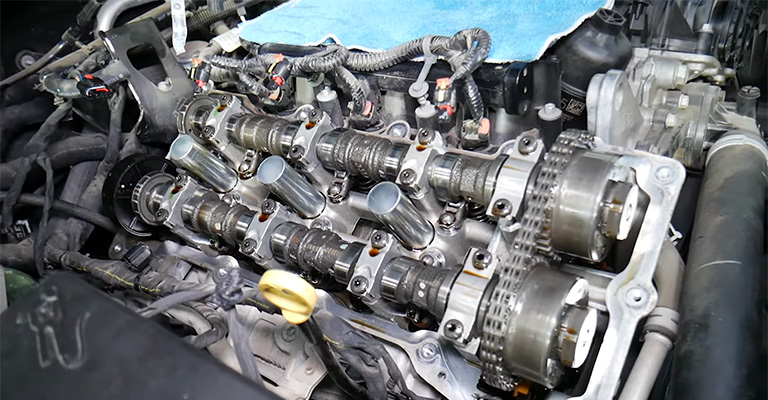
Why Do Your Vents Smell Like Burning Oil?
If your car vents have a burning oil smell, it is likely due to an engine or exhaust system leak. An engine or exhaust system can build oil due to a faulty seal, oil filter, stuck injector, or cracked seal.
This can result in oil being deposited into the engine’s exhaust system, heating up, and producing a burning oil smell. Diagnosing and fixing any issues as soon as possible is important to prevent further damage.
Reasons for Burning Oil Smell Through Vents
Driving with air vents smelling like burning oil is unpleasant. It can be dangerous and uncomfortable. The cause of this odor in your vents must be determined and fixed. Smoke from your air vents can result from the following causes.
Oil Leaks from the Valve Cover
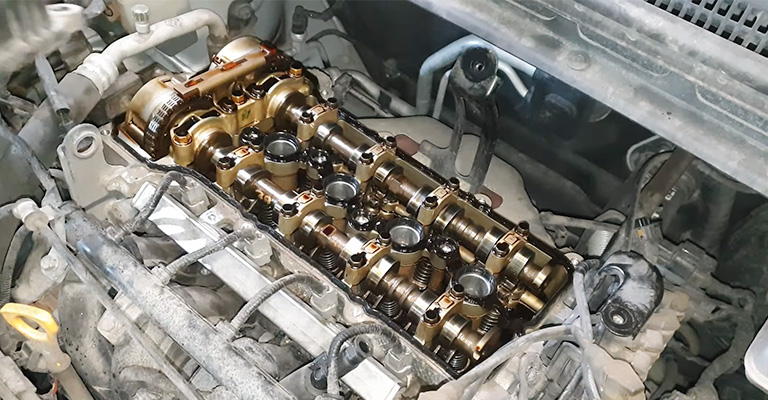
The most common and likely cause of this issue is oil leaking from the valve cover gasket. If your valve cover leaks oil, it may drip onto the exhaust system and back into the engine, giving off a burnt-oil stench.
Since the oil evaporates quickly, it can be difficult to find a leak of this kind. The angle at which your engine is set causes oil to pool around the valve cover. Oil leakage is more likely at the longitudinally mounted engine’s rear side.
When troubleshooting the engine, you may have trouble gaining access to the back of the valve cover. Because of how old the car is, the problem is probably caused by a broken or loosened valve cover nut or bolt.
A faulty valve cover gasket could also cause oil leakage. Consider that you discovered leaks and damaged valve cover bolts in the same area. You should switch out the gasket and the bolts on the valve cover to stop the leak.
Leaking Exhaust Gas
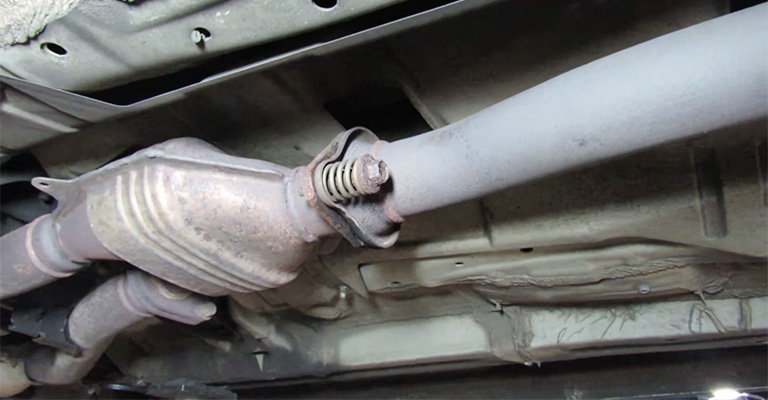
A burnt oil smell may be coming from your engine vents if there are exhaust leaks in your engine compartment. Even the smallest openings around the exhaust manifold, pipe, and catalytic converter can enter the exhaust gas.
However, exhaust leaks are usually easy to detect. To find a leak in your exhaust system, take a spray bottle full of soapy water and mist the exhaust manifold and pipes before starting the engine and letting it run for a few minutes.
Bubbles appearing in the sprinkled areas are a good indicator of a leak. Exhaust leaks, which change the sound of your engine if they’re large, can be detected similarly.
Blown PCV Valve
The positive crankcase ventilation of your engine is controlled by PCV valves on the valve covers. Over time, a faulty PCV valve can cause the bolts on your valve cover to loosen and the gasket to leak.
This could cause oil to leak into your engine compartment. Which, if spilled onto a hot surface, would cause a foul, burning odor. Because a defective PCV valve might easily crack your gasket and loosen the bolts.
Having leaks or cracks in the sealed hoses connecting the PCV valve can protect it from functioning as intended. Your PCV valve works properly if your fingertip creates a significant vacuum when you touch it while the engine is running.
Oil Leak in Exhaust System
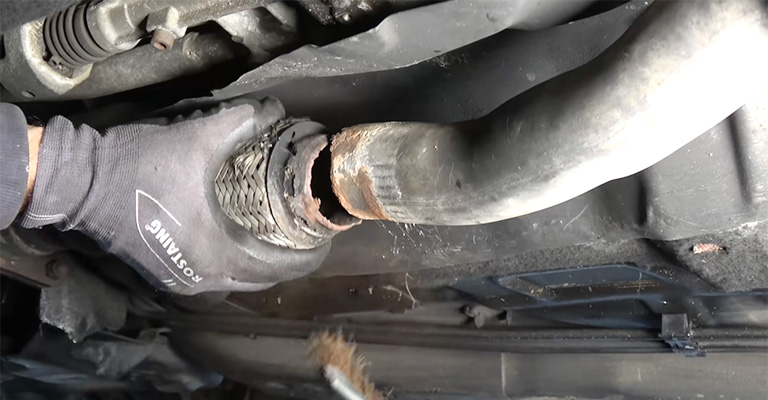
Engine oil could leak onto hot surfaces if a crack, gap, or loose part allowed oil to escape. It could also cause your cabin to smell like burning oil when oil drips to the ground or greasy dirt cover the bottom of your engine bay.
Failure to Perform Proper Oil Change
A careless oil change can cause oil to leak into the exhaust pipe and other parts of the vehicle. Your car’s interior will get a distinct oily odor as the engine warms up because the oil upon that hot surface will evaporate.
Within a few days, the oil should completely burn off, and the stench should disappear, assuming there is no other leak.
How to Remove the Burning Oil Smell Through Vents
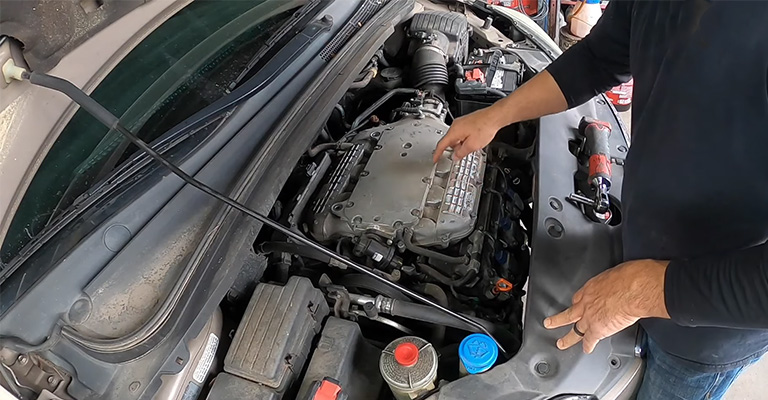
It would have been more convenient to use perfume to eliminate the smell of burning oil, but no such device can permanently remove the odor.
Finding the cause of the problem, fixing any leakage, and replacing worn parts could improve performance. The following recommendations are offered if you wish to remove the odor of burning oil from your vents.
Sort out the Root of the Issue
It’s difficult to form an opinion without knowing what’s causing the smoky odor. Significant oil ring and gasket wear are to blame, or a simple oil leak in the engine made its way to the exhaust.
Oils of different viscosities are needed for the engine, the brakes, and the transmission, so it can be tricky to tell which part is broken without checking all of them.
You might not find anything if you lift the car up and look under it. This is why going to a professional mechanic or auto shop is recommended.
Never Ignore the Warning Signs
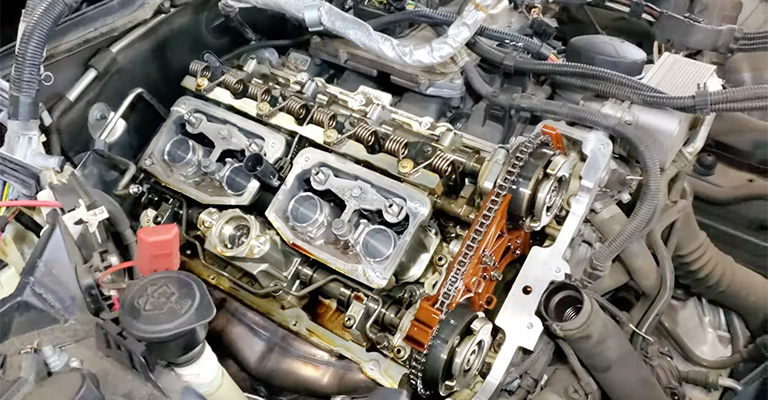
If you ignore a problem in its initial stages, you may have a much bigger one later. Let’s say you’ve noticed that your car’s gears aren’t shifting smoothly or make annoying noises whenever you shift.
As a result, your engine is getting warmer than usual, the oil level is falling dramatically with no obvious leak, and the brakes are only partially effective.
These are fundamental problems that, at first glance, may not seem like a big deal. But, if left unattended for an extended period, it will become a major annoyance.
If you detect a burning oil odor, or oil leaking from somewhere in your system, you should immediately locate and repair the leaks before it is too late.
The gear shaft damage is more serious now because you ignored it for so long. To make matters worse, you can smell burning oil because the pistons and rings are ruined and can no longer hold onto the lubricants.
Paying close attention to the details will help you avoid a more serious situation brought on by the lingering smell of burning oil.
Do Vents Smell Oil after Oil Change?
If your oil change was done correctly and your car has no leaks, it is not typical to smell burning oil afterward. Common reasons for a burning oil smell soon after an oil change include the following.
Wasted Oil
When performing a routine oil change, some oil will inevitably splash. A burned oil odor could be present if this oil makes its way to your vehicle’s exhaust or another high-heat area. There is no need to panic if the smell of burning persists.
The Oil Drain Plug Is Loose
When it’s time to change the oil in your engine, you’ll need to remove the drain plug and other parts so the remaining oil and debris can flow out. This will prepare your engine for a fresh oil change.
It is possible to smell burning oil if the oil filter, cap, or drain nut isn’t securely fastened or is loose. Doing a thorough inspection after you’ve changed the oil is a good idea.
Any Leaks
All mechanical parts must be oiled to function properly, including the engine, brakes, transmission, and others. You may have a leak if you smell burned oil while driving, experience unusual engine heat, or have other unpleasant sensations.
It would be wise to take these concerns seriously and get an honest evaluation.
Other Causes of Burning Smells Through Vents
Here are some additional potential sources of that burning smell from your air conditioning vents and what you can do about it.
The Smell of Plastic on Fire
It is one of the most common driving issues. Any time your air conditioning vents smell like they’re on fire from burning plastic, you know there’s a lot of dust.
Most car owners care about the car’s exterior and often forget the importance of maintaining and cleaning the interior, including things like the vents.
The vent’s plasticky smell could also result from a broken air conditioner or heater. Leaking antifreeze from the heater will give off a burning plastic smell.
The rubber on Fire Smell
Rubber burning has a distinct smell that can be picked up in any environment. When you notice a burning rubber odor coming from your car’s ventilation system, it’s time to check all the belts.
Problems with your air conditioner’s compressor can significantly strain the rubber belts. Your rubber belts may melt or wear out if they are subjected to too much stress or heat.
Burnt Fish Odor
Smelling like fish that has been overcooked is a telltale sign of faulty or burning wiring in your car. Copper wire with a polymer covering is used for these electrical wires.
So, if you detect a noxious odor similar to burning plastic and fish, you must check the wiring at once.
Final Thoughts
The burning oil smell through vents is likely due to a malfunctioning part of the engine system. To prevent further damage to the car and keep it running smoothly, it is important to troubleshoot the possible causes.
Once the problem is determined and fixed, the burning oil smell should no longer be present. Having these faults serviced as soon as possible is important to ensure your vehicle’s safety and prolong its life.
Ignoring this issue can cause further damage to the car and may even lead to costly repairs in the future. A professional mechanic should address it immediately to determine the cause and fix the problem.
Leave a Reply